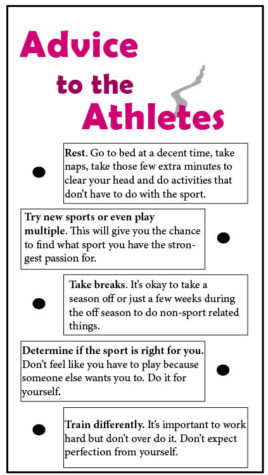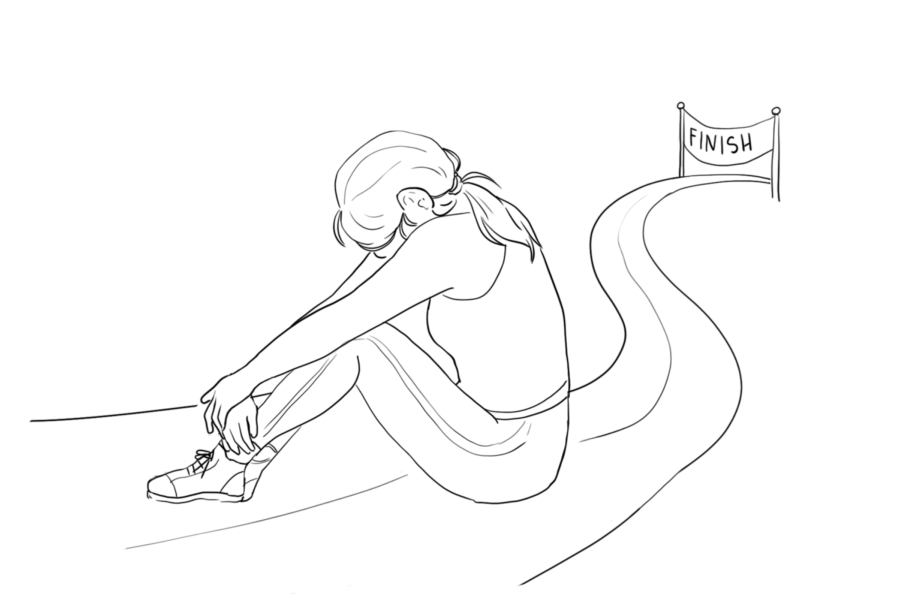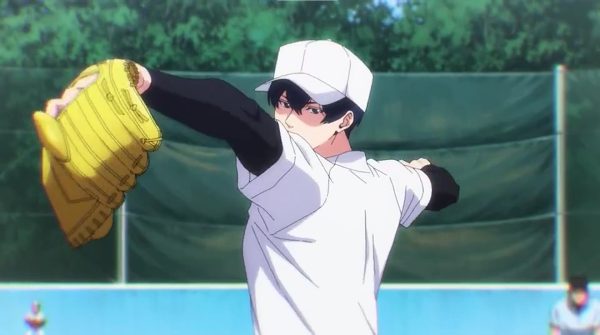The exhausting part of being an athlete
photo by Caitlyn Hale
Athletes work their entire lives to get to where they are today but sometimes burnout takes over and their careers end and they lose the love for the game. Burnout happens for a number of reasons, whether it is because of a coach, a toxic environment, or they are overworked, many athletes have to go through this.
Waking up to your 5:45 a.m. alarm, you jump out of bed and run into the kitchen, grabbing some toast and coffee and rushing out the door to school. After classes, you drive to an away game to warm up for an hour before playing a two-hour long game. After the game, it’s already 7:30 p.m. and you have not yet eaten dinner, showered or started the six homework assignments due tomorrow.
This is the life a student-athlete lives during their season. On “off” days, there are usually practices scheduled in the afternoon. It is rare that an athlete has a true off day. Between club and school sports, it is extremely tough to keep up with a demanding sports schedule. Not everyone is cut out to be a student-athlete.
Whether it is due to a coach, a toxic environment or being overworked, athlete burnout happens for a number of reasons. It’s a real thing, not just some made up philosophy. Coaches and parents are quick to assume that their players are tired or simply “lazy,” when in reality, they are burned out. Not everyone understands burnout. Not all athletes are exactly comfortable with telling everyone that the reason they quit was because they were burned out. This is because many don’t believe burnout is a real thing.
Imagine an athlete who has been playing a sport since they were five. They have worked tirelessly to get to where they are, and then bam: their athletic career is over. Losing love for a game one has been playing their whole life is devastating for an athlete. Even if an athlete is burned out, that doesn’t mean that leaving is easy.
Not many athletes realize that it is okay to step away from their sport. When one starts to notice that their sport seems to be a chore instead of enjoyment, it might be a good time to take a step back and take a break.
Just like teachers wanting students to take their classes, coaches want exceptional athletes to play for their team. Coaches care about your well-being and mental health, but they are also trying to put together a winning team. Coaches always want you to get better and push yourself, but there is a limit and it is important to know when the limit is exceeded.
Like anyone, an athlete needs to look out for themselves. If playing the sport is no longer what a player wants to do, they are allowed to step away and take time for themselves. An athlete should not let outside sources like parents, coaches or teammates be the reason why they play. Being strong enough to say “no” and taking time to determine if the sport is right for them is what many athletes have to realize.
The vast majority of athletes go through a moment in their career where they feel overwhelmed, and the vast majority has to make the decision to step away or not. It’s normal, and no decision that important is an easy one. But giving up is not always the answer. Taking time away will give an athlete the chance to find their love for the game again or decide it’s not meant to be.
giving up is not always the answer. Taking time away will give an athlete the chance to find their love for the game again or decide it’s not meant to be.
Burnout should be managed, meaning that one should take steps to control it like anything else in life. Being a perfectionist only serves to hurt an athlete – or anyone. Learn to be okay with making mistakes. Great things don’t happen overnight. One should have to work for what they want but be careful not to over do it and let it consume your life.
High school is a time to try things out. If a sport isn’t for you, you’re not committed to play it until graduation or even college, and everyone should be okay with that. If you want to try multiple sports and not dedicate all of your free time to open gyms and club teams, that is your choice.
Your donation will support the student journalists of Hagerty High School. We are an ad-free publication, and your contribution helps us publish six issues of the BluePrint and cover our annual website hosting costs. Thank you so much!












